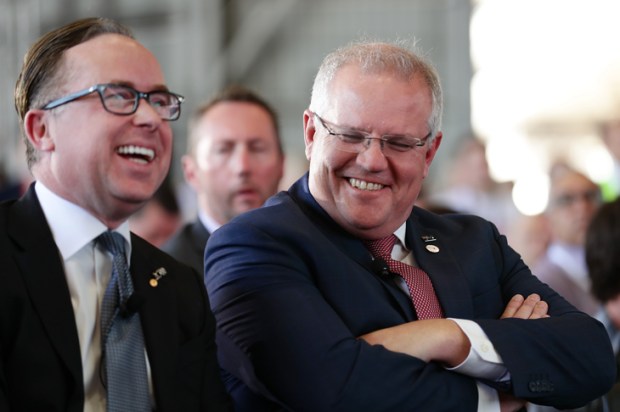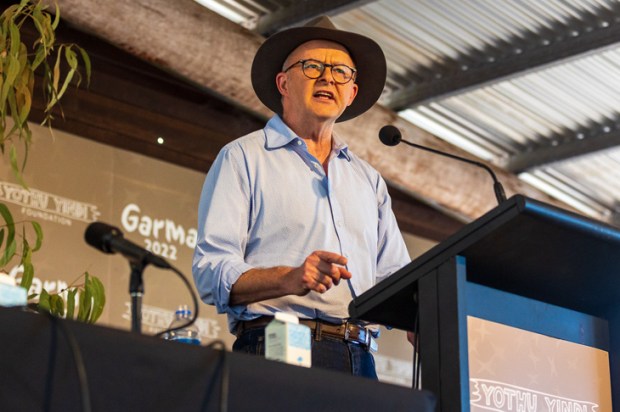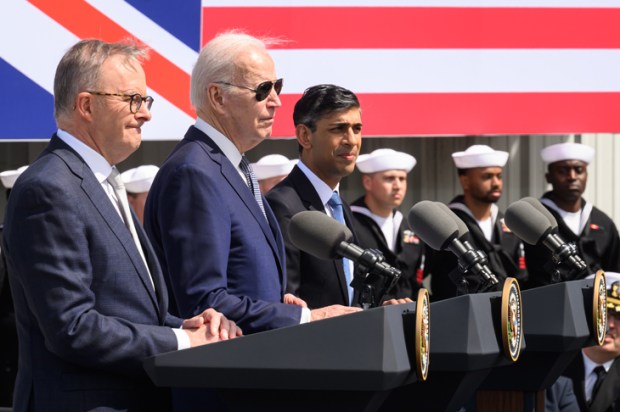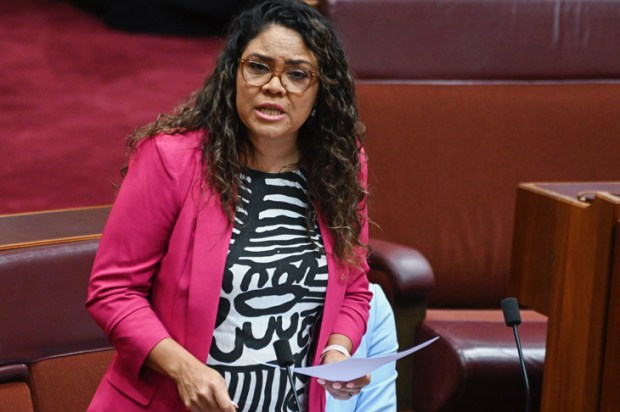Rudd fancies himself as Metternich
The latest edition of Foreign Affairs, the American foreign policy journal, contains yet another article by Kevin Rudd on how to prevent the competition between the US and China from turning into a global military catastrophe (‘Short of War’). It is the third article from our Kev on this vexed topic in this journal in the past six months.
Rudd is not alone in being concerned about the state of China/US relations and dozens of articles have appeared lamenting the perils we face due to the rise of China but he is one of the few commentators to have proposed a peaceful solution.
The main problem in the West’s relationship with China is Taiwan. Peaceful unification is now off the table given what is happening in Hong Kong. What the Chinese are doing to the Uyghurs may not be very nice but, as the problem is buried deep in China, and as the world’s other Muslim communities don’t care about what is going on in Xinjiang, the West can satisfy its conscience with a few forceful tut-tuts. But it is increasingly apparent that unless the West can come up with a solution, Taiwan’s days as an independent democracy are numbered. As Comrade Xi so delicately put it last year, ‘We cannot keep passing the Taiwan problem down from generation to generation’.
Rudd correctly describes Xi’s paramount goal as securing control over Taiwan. The Chinese believe America is in long-term structural decline and that they will soon be strong enough to crush any attempts to support Taiwan when the invasion starts. Rudd argues that, ‘The deeply conflicting nature of US and Chinese strategic objectives and the profoundly competitive nature of the relationship may make conflict, and even war, seem inevitable—even if neither country wants that outcome’.
Rudd’s proposed solution is a ‘managed strategic competition’ in which each side would compromise. ‘Washington must return to strictly adhering to the “one China” policy, especially by ending… provocative and unnecessary high-level visits to Taipei…. Beijing must dial back its recent pattern of provocative military exercises, deployments, and manoeuvres in the Taiwan Strait. In the South China Sea, Beijing must not reclaim or militarise any more islands and must commit to respecting freedom of navigation and aircraft movement without challenge’.
But Rudd’s solution is at best, wildly optimistic and some might say delusional. Despite the fact that he claims a deep understanding of the history of the Chinese government, he refuses to recognise that Comrade Xi has contempt for international law and will invade Taiwan the moment that he can do so without too large a cost.
Nowhere does Rudd discuss alternative solutions such as the possibility of establishing the D-10 bloc. The idea of this grouping bobs up now and again at international forums and then is forgotten. Its latest iteration is from Boris Johnson who is anxious to reposition Britain as a global leader now that it is independent of the EU. The proposed D-10 would consist of the current G-7 plus Australia, South Korea and India and its aim would unashamedly be to resist the rise of totalitarian tyrannies by establishing an economic, military, and political group strong enough to resist China and/or Russia.
Rudd’s reluctance to consider the establishment of such a grouping is because he has previously argued that the first world war was largely due to the establishment of alliances formed to counter the rising power of Germany. According to this view, had the European powers focused more on talking and less on forming military alliances, war might have been avoided. In the same way, according to Rudd, war over Taiwan can be avoided by patient diplomacy and negotiation in which each side will ‘accept that the other will still try to maximise its advantages while stopping short of breaching the limits. Washington and Beijing would continue to compete for strategic and economic influence across the various regions of the world… with Washington stressing the importance of democracy, open economies, and human rights and Beijing highlighting its approach to authoritarian capitalism and what it calls “the China development model”.’
Two hundred years ago Metternich described himself thus ‘There is a wide sweep about my mind. I am always above and beyond the preoccupations of most public men. I cannot help myself from saying about twenty times a day: how right I am and how wrong they are’. There is no debating the wide sweep of Rudd’s mind and, like Metternich, he isn’t short of self-assurance. He is probably still seeking a role as a statesman like Metternich whose ‘system’ brought peace to Europe for 33 years. Rudd’s proposal for peace in North East Asia will last only until China thinks it is strong enough to conquer Taiwan and, given its military expansion, that day is not far off.
Despite Rudd’s wide knowledge of China and his deep understanding of its people, he is at heart a bureaucrat. Soldiers seek military solutions to unavoidable conflicts, bureaucrats seek negotiated solutions and it is the job of politicians to decide which path to follow.
The lesson of the Tiananmen Square massacre is that China is still led by a ruthless clique of despots who will slaughter its own citizens, then puree their corpses by running over them with tanks and, after cleaning up the mess, deny it ever took place.
It is over thirty years since the Tiananmen massacre and still the Chinese government refuses to admit the truth about that tragic event. It remains for me a puzzle as to how Chinese government officials can stand up in forums around the world and continue to lie on the scale that they do. Those diplomats who travel overseas and have access to the internet must know what happened but there are hardly any defections. How can we trust such people?
If it comes to a choice between the D-10 and the Rudd system to ensure the survival of Taiwan, I know where I’d put my money.
The sooner the D-10 is strong enough to include Taiwan to become the D-11 and unequivocally stand up to China, the better it will be for the entire region.
Got something to add? Join the discussion and comment below.
Get 10 issues for just $10
Subscribe to The Spectator Australia today for the next 10 magazine issues, plus full online access, for just $10.
You might disagree with half of it, but you’ll enjoy reading all of it. Try your first month for free, then just $2 a week for the remainder of your first year.














Comments
Don't miss out
Join the conversation with other Spectator Australia readers. Subscribe to leave a comment.
SUBSCRIBEAlready a subscriber? Log in